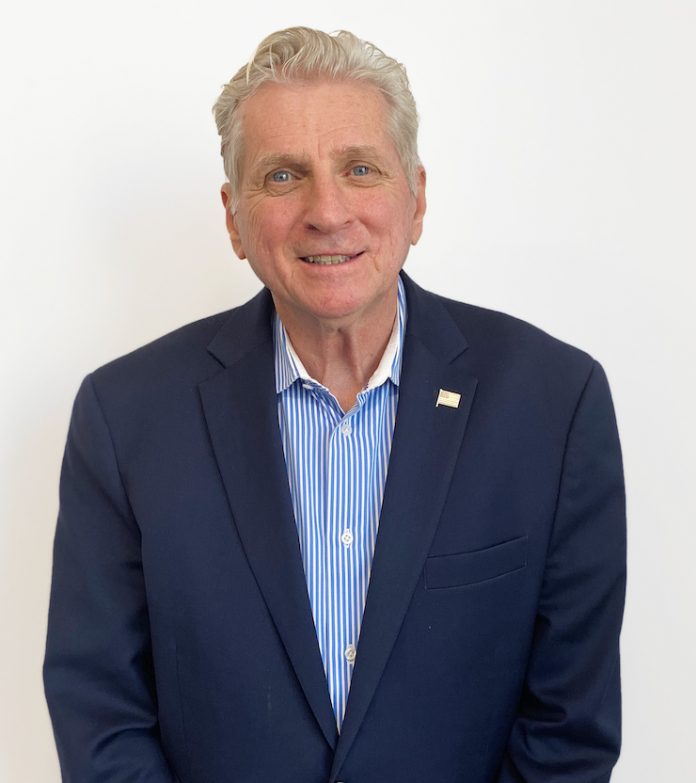
When John Russell was appointed interim CEO of RLH Corporation in December following the resignation of Greg Mount, he could hardly have imagined what lay ahead for the entire world just two months later. This industry veteran hired to step into the breach during the company’s search for a permanent CEO brought to the job 40 years’ experience in the industry—with all its ups and downs—including global lodging franchise management, operations, development, and marketing for hotels and resorts. While speaking to LODGING about how the company is supporting its franchisees during today’s unprecedented challenges, Russell synthesized an overall approach he favors with the saying: “When you’re going through hell, keep going.”
What are you doing for RLH Corporation franchisees, who, along with their employees and the entire industry, are also struggling during this challenging time?
Being a franchise company, the owners are our clients, our customers, our partners, and our friends, so we all share in the pain with what’s going on. Although the vast majority of our properties remain open, it is with drastically reduced occupancy, and, unfortunately, fewer team members.
To help franchisees with cash flow, we’re offering several programs across all brands, including a fee default plan whereby fees for the months of April, May, and June can be deferred and paid back over a nine-month period. We’ve also enacted some additional fee reductions, and have also loosened brand standards so owners have more time to comply with property improvement plans. We have further paused quality assurance audits through the end of June.
We are also offering guidance on best practices for keeping their hotels clean and open for business, working closely with the American Hotel & Lodging Association (AHLA), the Asian American Hotel Owners Association (AAHOA), and the National Restaurant Association. And to better attract and serve available business—mainly essential workers, including healthcare, truckers, postal workers, firefighters—our programs include a 50 percent discount and $50 rewards bucks.
Given that these essential workers are at elevated risk of exposure to the virus in their jobs, how are you prepared to keep them, other guests, and employees as safe as possible?
We ask owners and their employees to adhere to guidelines such as those circulated by CDC and WHO and their own local and state requirements. This includes mandates to stay six feet apart, avoid gathering in large groups, and wear gloves and masks. We suggest they place six-foot markers for the check-in line and consider putting Plexiglas or other barriers between the front desk area and guests.
To limit contact, guests should be encouraged to use a credit card terminal, and hand sanitizer should be available at the front desk and near all high-contact areas—including restroom doors, all doorknobs, and elevator buttons. They should make face masks and gloves available to all guests and employees; maintenance and housekeeping employees should be required to wear gloves and masks at all times. We also recommend implementing hourly wipe-down schedules whereby lobby furniture, as well as other high-contact surfaces, are sanitized.
Guestrooms should routinely be distanced from one another by skipping at least one room between guests. If it is discovered that a guest actually has the virus, that room and any connected to it should be blocked for at least three days after it is vacated, after which housekeepers should take even greater precautions—changing gloves, mop heads, sponges, and cleaning rags every time they enter that room.
How are you effectively communicating this information to franchisees?
It does no good to have guidelines that aren’t implemented or programs that aren’t taken advantage of. This business, even more than most, is a relationship business, and we and our franchisees need to communicate effectively to succeed together, so we’re not leaving anything to chance. Although most corporate employees—including myself—are now working remotely, we are in nearly constant contact with franchisees. We speak to them by phone at least once a week to ask how they’re doing, ask how we can help, and generally let them know we’re still here for them. But we also send them newsletters, e-blasts, and have a website that offers detailed information, including videos. There are also all-hands calls with owners and with the boards of directors.
How are you planning for recovery?
Although occupancy is down, 96 percent of our hotels are still open for business. Part of the reason is that a lot of our properties are in secondary and tertiary cities, along interstate highways, where people—primarily essential workers—are still traveling, and that we are offering incentives plus a 50 percent discount on our already low rates.
When recovery does come, however, it will likely come in phases. After being cooped up for months, people will want to get out; we expect people will at first be more comfortable traveling by car, not train or plane, and will be traveling along the interstate in those secondary and tertiary cities where most of our properties are located.
But I also believe travel will be different for a while. Although we hope we’ll get back to full normalcy in the none-too-distant future, we need to continue following best practices guidelines, such as renting every other room, keeping people six feet apart, and generally remaining vigilant about sanitizing guestrooms and high-touch surfaces throughout the property.
What advice do you have for hoteliers now to help them get through this?
I’d offer encouragement, let them know we have their back. We’re in business with them—if they’re successful, we’re successful; if they make money, we make money. From my perspective as a CEO, I believe it is my duty to be a deliverer of hope.











